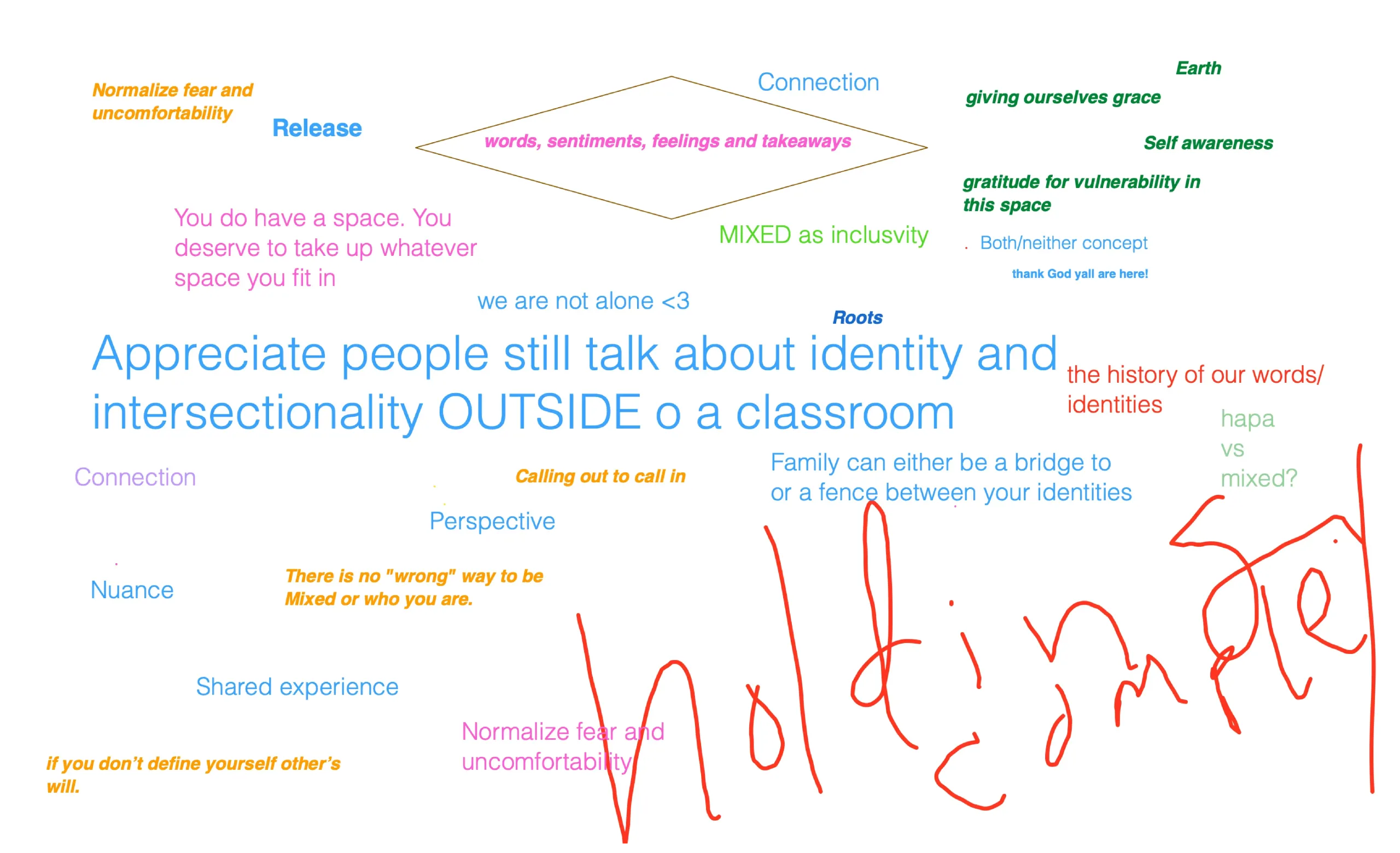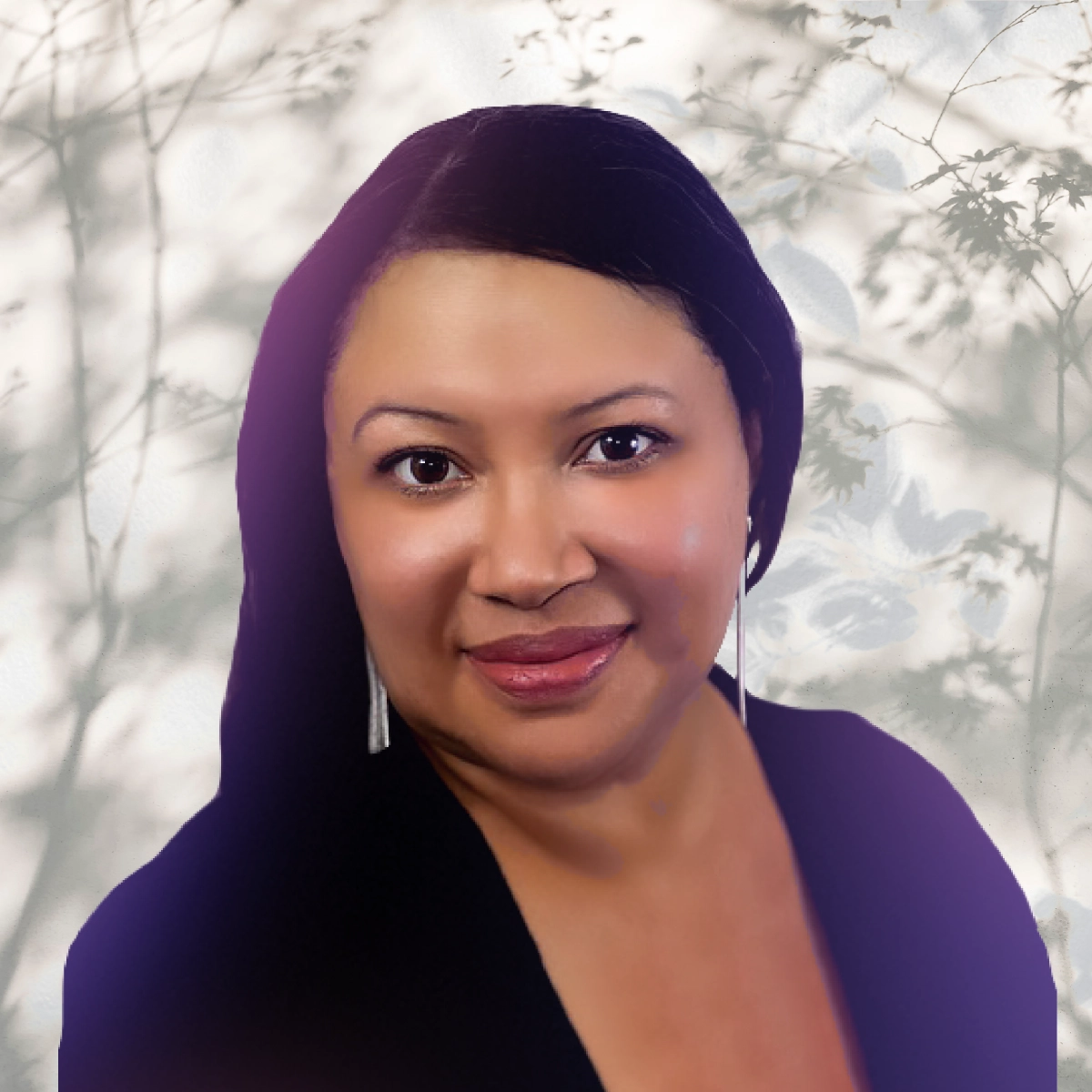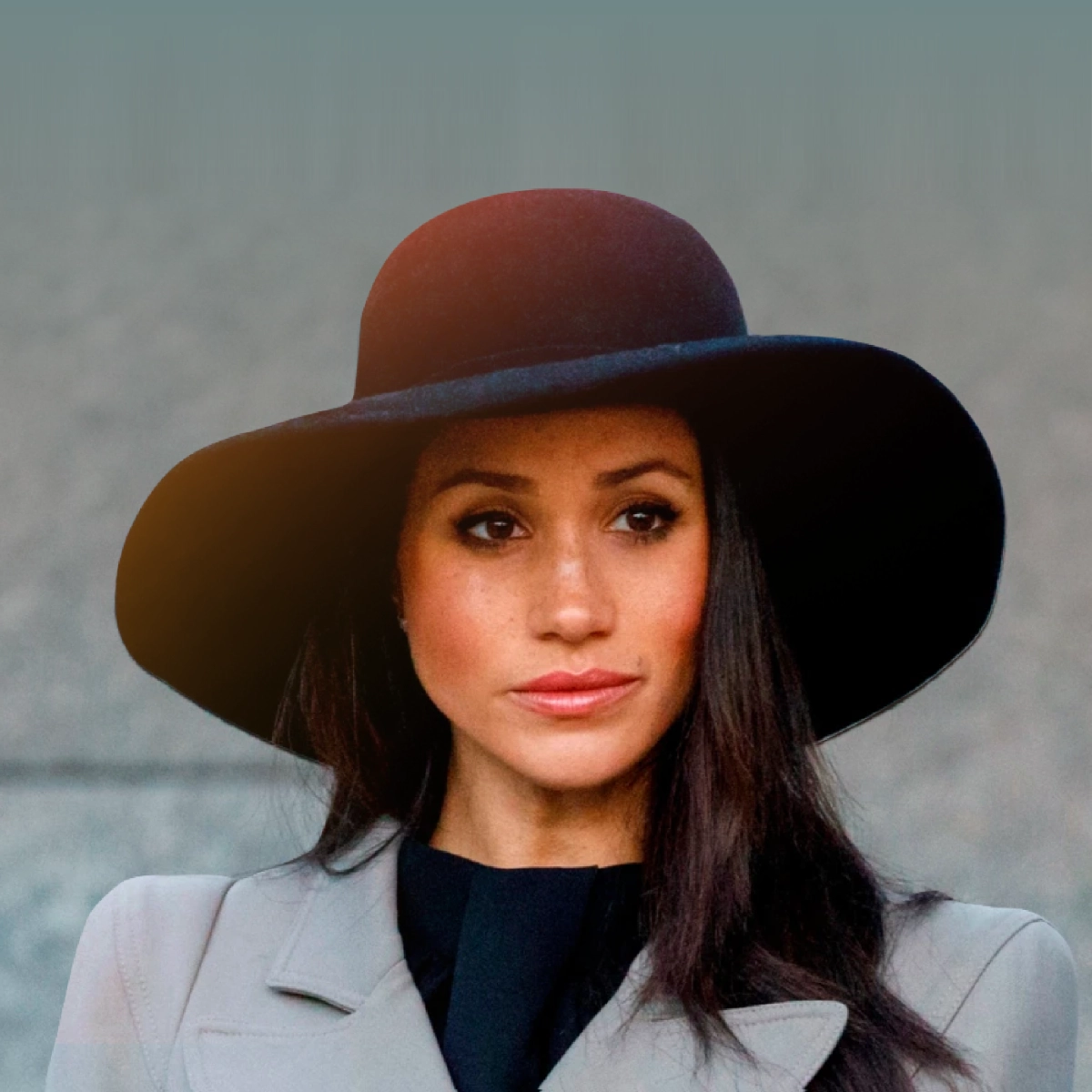“There’s going to be a lot of talking tonight,” The Mixed Space (TMS) founder Lili Stiefel excitedly announced as she pivoted the spotlight to our community members. For the February Meetup, we took it back to the roots of TMS as we discussed the journey of mixed identity. Lili along with TMS co-founder Ariel Bastida started by sharing their growth with the company since its beginnings. “I have grown tremendously since we’ve launched moderating meetups, holding space and continuing to learn new words and dynamics that shape our society,” Ariel said. The two founders then opened the floor to the community to share their journeys of mixed identity along with a deep discussion on a few important vocabulary words: mixed, intersectionality, and code-switching.
Prior to the meetup we asked our community: What is the “who, what, where, when and why” of your mixed journey? At the meetup, we encouraged members to have an open conversation where they could freely take up space to express themselves, learn from one another, and define the key terms from their own experiences. It was an enlightening feeling to see each other’s vulnerability when sharing the different experiences of our mixed heritage, ranging from the labels we’ve dealt with to our pride in the identities we own. As one community member said, “I am the flower that bloomed from the soil of many lands and hands.” We were able to delicately unpack the word “intersectionality,” which stems from the renowned essay by Kimberlé Crenshaw who coined the term. We discussed the connotations we’ve carried in our day to day, and learned everyone’s definition and understanding of the historical context of intersectionality. Through this discussion, we recognized the term’s function in advocating for black women who live at the intersection of race and gender discrimination.
Since some TMS members might not have the opportunity or privilege to discuss their mixed identity so openly, we began our breakout room sessions earlier in the meetup and kept them open longer until we resumed as a group. During the breakout rooms, each group shared their journey of mixed identities and spoke about the moments that shifted us. “The conversation around mixedness and identity continues to grow in recognition,” Bastida said. “However, we find there are still plenty of gaps in finding resources and even raising awareness about this topic.”
We are consistently touched by our community members’ honesty, their openness to vulnerability, and ability to learn from one another. Stating the importance of heritage, one community member said, “We need to tell our story or else someone will co-opt our story for their own.” We were also moved by some of our member’s lifelong experience in code-switching, delving into both its burden and (to some) its benefits. One member brought to light a quote by the journalist Ida Harris: “Code switching is not trying to fit into white culture–it’s surviving it.” All of us left the meetup having been a little more enlightened, evolved, and proud of the skin we live in.
Overall, it was our community who brought the most knowledge to our meetup and we felt so honored by their presence. Here are a few gems that were dropped during our discussion:
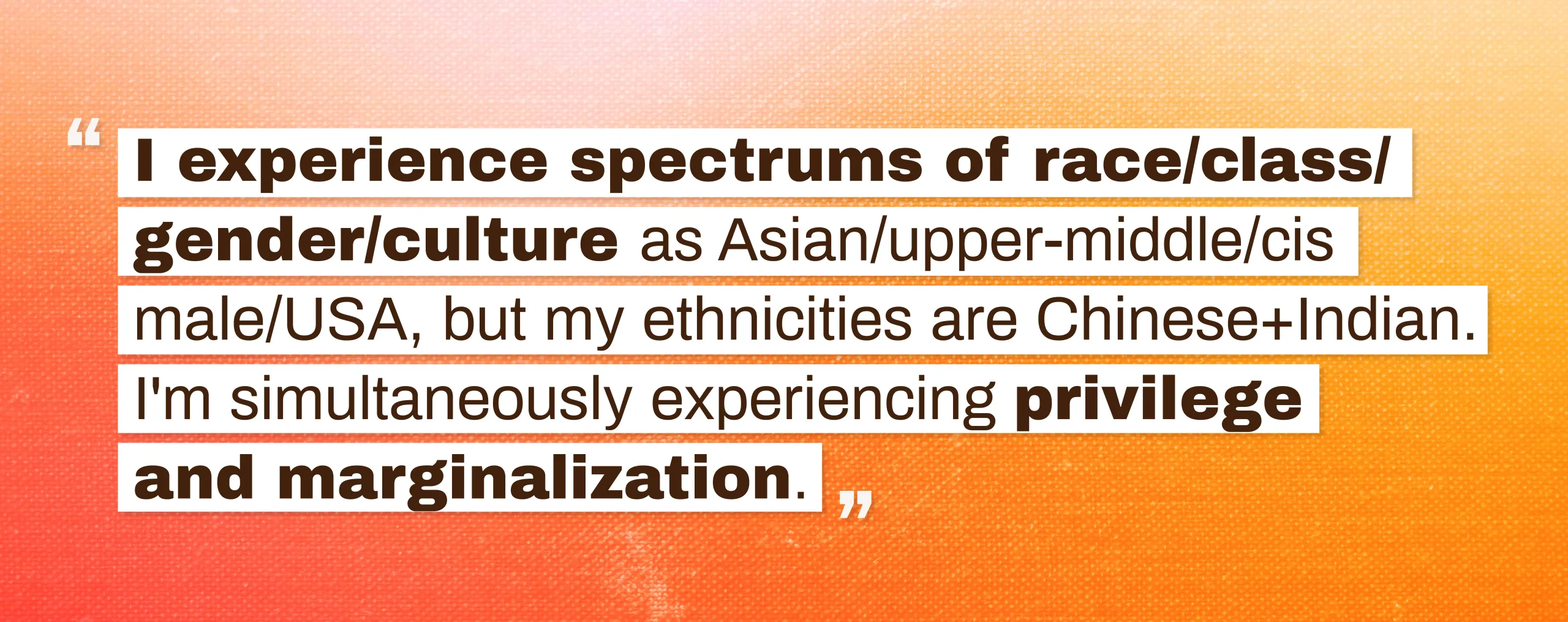
Community Responses to “What does being mixed mean to you?”
“My blood from every continent.”
“Mixed: coming from many places, not necessarily knowing 100% where we come from, and accepting the beauty of it.”
“I don’t really identify as mixed as much anymore. I feel like the term ‘mixed’ reinforces this idea of racial purity, which is deeply racist and troubling. More and more, I’m leaning towards multiracial.”
“I like to refer to myself as a biracial, bisexual, biped, haha!”
Responses to Our Definition of Intersectionality:
“Intersectionality is not about being unique. It is about experiencing discrimination differently from people who share one marginalized identity, but not another.”
“I experience spectrums of race/class/gender/culture as Asian/upper-middle/cis male/USA, but my ethnicities are Chinese + Indian. I’m simultaneously experiencing privilege and marginalization.”
“In all the conversations that I have had about intersectionality, it is in relation to a person’s both oppression and privilege based on all of our identities.”
“Gloria Steinem voiced preference for weaving (I also like braiding) as I think they better represent what Crenshaw pointed to as ‘co-constitutive.’”
Community Responses to Their Experiences with Code-Switching:
“Being raised by my white mom, in a place where my whiteness was protection, I had the most discomfort adjusting to the internal pull to code switch in Black spaces.”
“I’ve felt that code-switching is almost a form of protection when we’re in certain spaces.”
“Just working in corporate America has been for me generally a code-switching experience to mainstream cultural norms.”
“I don’t know if this is a popular opinion, but I consider my ability to code switch a superpower—I can be a great ally/co-conspirator with that skill.”
“{code switching} positions me to be an effective bridge-builder.”
“Positive benefits to code switching: ‘Know your audience’…spend less time clarifying and more time engaging in understanding.”
“I don’t like the burden placed on mixed people as ‘bridge builders’ and ‘mediators.’ That’s a lot of pressure to put on us without choosing to be so.”
“I code switch because I want to stay employed. I find very little good about it as it’s imposed by white supremacy.”
“I think people will approach code-switching based on our own varying degrees of privilege, and introverts vs. extroverts maybe, and anxiety levels, etc.”
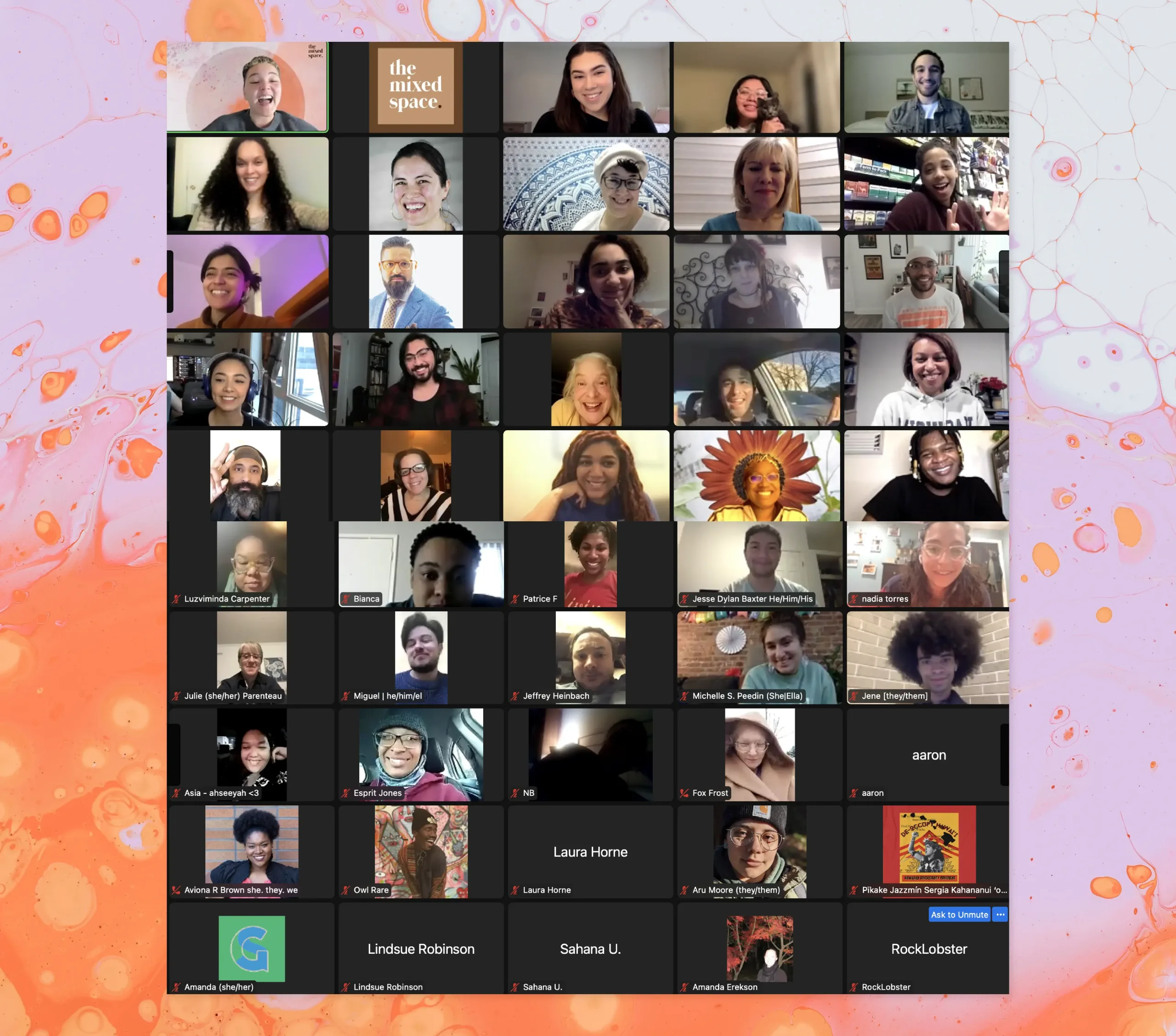
Community recommendations:
For Black identifying women experiencing workplace discrimination I highly recommend Busisiwe’s YouTube channel Black Women in the Workplace
Just Us: An American Conversation by Claudia Rankine
White by Law: The Legal Construction of Race by Ian Haney López
American Born Chinese by Gene Luen Yang
Asian American Dreams: The Emergence of an American People by Helen Zia
Ka Puke Hana Nui – published by Empowering Pacific Islander Communities (EPIC)
Identity Economics: How Our Identities Shape Our Work, Wages, and Well-Being by George A. Akerlof and Rachel E. E. Kranton
The White Man’s Guilt by James Baldwin
Miscegenation Blues: Voices of Mixed Race Women by Carol Camper
Emergent Strategy: Shaping Change, Changing Worlds by Adrienne Maree Brown
America is Not the Heart by Elaine Castillo
Abolition for the People edited by Colin Kaepernick
The 1619 Project: A New Origin Story created by Nikole Hannah-Jones
Well-Read Black Girl by Glory Edim
Black History, Black Freedom, and Black Love from Masterclass
In celebration of TMS’s three years of operation and to continue its journey, the funds collected from this month’s meetup will go directly back into keeping the TMS team going. We thank you for your support.
